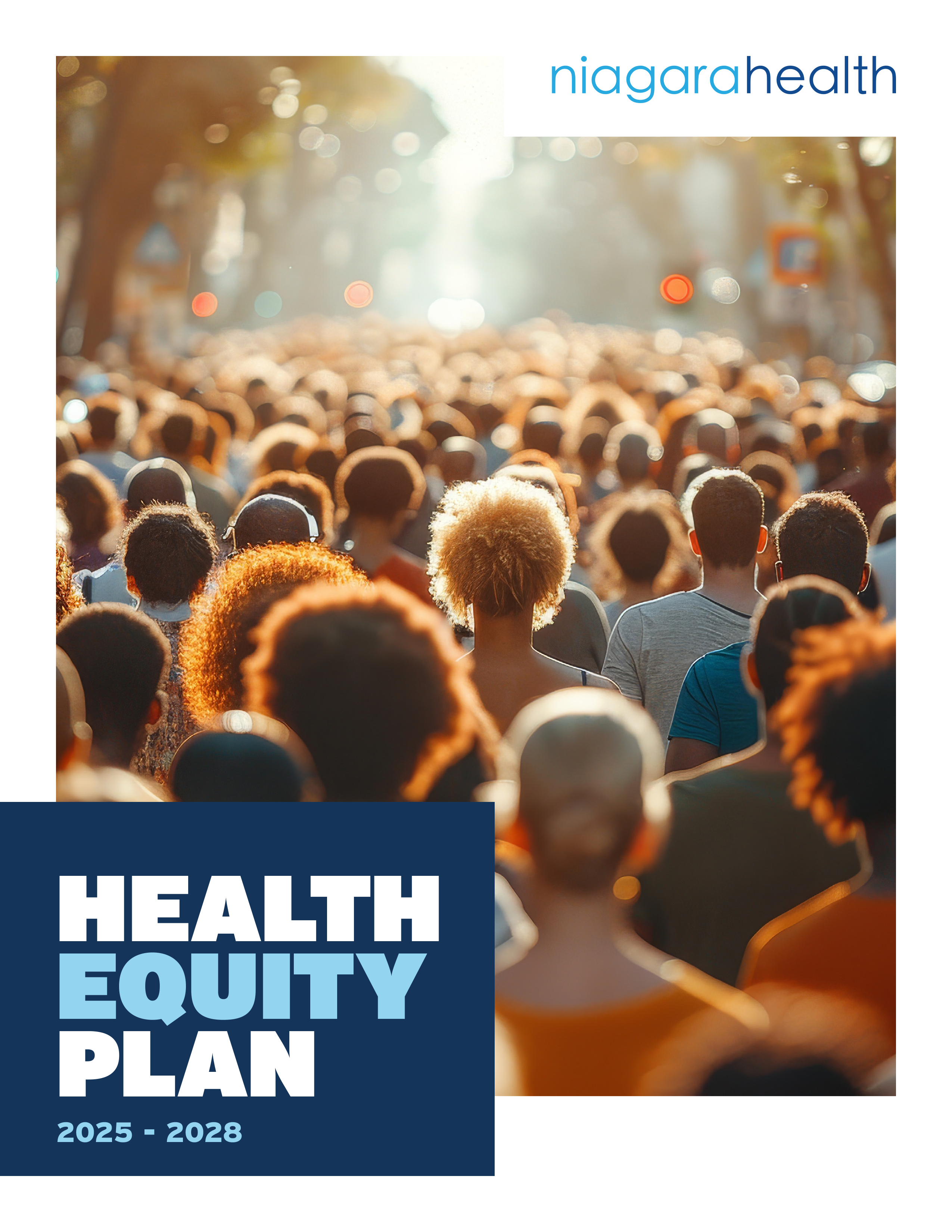Niagara Health is proud to announce the launch of its first Health Equity Plan, marking a pivotal milestone in Niagara Health’s journey. The plan introduces a structured approach to addressing disparities and improving care through targeted quality improvement, community collaboration and data-informed decision-making. It will serve as a roadmap to creating a more inclusive and responsive hospital system, ensuring that every person is empowered to seek care when they need it.
The Health Equity Plan will focus on improving care for three priority populations: older adults, individuals experiencing homelessness and Black communities, aligning with Ontario Health’s Black Health Plan. By prioritizing measurable outcomes, fostering collaborative partnerships, and utilizing data-driven strategies, the approach will drive sustainableimprovements in patient care.
"We have already made significant progress in embedding diversity, equity and inclusion into Niagara Health’s culture, policies and programs,” says Lynn Guerriero, President and CEO. “This plan helps us build on that strong foundation in a clear and focused way – bringing out ongoing work and new ideas together to make a difference. I am so proud of the work that we’ve done to get us to this point and look forward to the progress this plan will help us realize.”
The Plan was officially unveiled during a webinar event at the Marotta Family Hospital in St. Catharines on Thursday, with community partners and Niagara Health team members all gathered to witness this significant milestone.

Developed through extensive research, consultations and feedback from partners, the Health Equity Plan is a testament to Niagara Health’s dedication to listening to the community it serves. The initiative aims to address gaps in healthcare access while recognizing the specific clinical needs of different populations. Niagara Health’s approach extends beyond hospital walls, focusing on creating meaningful partnerships to improve health outcomes through coordinated care pathways.
Dr. Jennifer Tsang, Executive Director and Chief Scientist at the Niagara Health Knowledge Institute, highlighted the role of research in the plan’s success.
“The Health Equity Plan is a commitment to an ongoing process of improvement, guided by research and community partnership,” says Dr. Tsang. “Through the Knowledge Institute, we will begin to explore how health outcomes differ among populations, identify opportunities for improvement, and develop an approach to share our learnings with other healthcare systems. This work will ultimately help us better understand and address the needs of our patient populations”
Carolyn Dyer, Executive Director of REACH Niagara, emphasized the importance of coordinated action in addressing healthcare access.
“The statistics in the Health Equity Plan are more than numbers to us – they represent the people we serve daily,” Dyer says. “Our partnership with Niagara Health is a tangible example of how moving from planning to action can make a real difference in the lives of vulnerable populations, particularly those experiencing homelessness.”
Zainab Awad, Manager of Health Equity at Niagara Health, provided further context on the significance of the plan noting, “this Health Equity Plan represents a transformation in how we approach healthcare.
BY THE NUMBERS:
- Black populations experience higher rates of chronic illnesses such as hypertension, diabetes and cardiovascular disease.
- 23.3% of Niagara’s population is 65 or older.
- Between 2021 and 2024, we have seen an 60.3% increase in ED visits from individuals experiencing homelessness.
“It acknowledges that achieving equitable health outcomes requires understanding the specific needs of our patients, addressing barriers to access and responding to social determinants of health. This plan is a living roadmap guiding us toward improved health outcomes for all patients,” she says.
Niagara Health is committed to transparency and accountability as it implements the plan. The organization will continue to engage with community partners, provide ongoing education to its staff, and utilize data to measure progress. Public reporting will ensure accountability and provide updates on the effectiveness of the initiatives aimed at reducing health disparities.
For more information about the Health Equity Plan, please visit our website.

